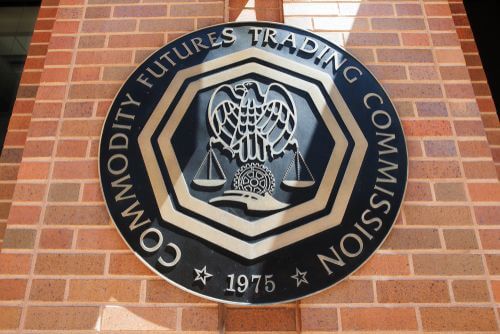CFTC votes to allow DLT-based collateral in commodities and derivatives trading

A CFTC subcommittee recommends using DLT-based collateral on exchanges. Endorsement can expand access to digital assets for smaller market participants. Strong ETF inflows are fueling growing institutional interest in digital assets.
Amidst a boom in the digital assets market, the US Commodity Futures Trading Commission (CFTC) is reportedly considering a proposal to use digital ledger technology (DLT)-based collateral for commodity and derivatives trading.
According to Bloomberg, a subcommittee of the CFTC's Global Markets Advisory Committee recently voted to recommend this proposal, which, if approved, would streamline transactions and lead to wider adoption of digital assets in traditional finance.
One step towards mainstream adoption
If the proposal gets final approval from the core committee, it could change how trading securities are administered.
Acceptance of DLT-based collateral allows merchants to settle digital assets with the speed and efficiency that digital ledgers and blockchain technology offer.
This change allows brokers to accept it through market-based systems, such as BlackRock's USD Institutional Digital Liquidity Fund (BUIDL) token.
While the use of blockchain-based assets as collateral is gaining traction among major financial institutions such as BlackRock and JP Morgan, the CFTC's potential approval will bring widespread acceptance across the industry.
Currently, only large companies have been able to use these new financial instruments, but this move could open the door for smaller market participants to enjoy the same benefits.
Uncertainty in the future
Despite the positive movement around the proposal, several steps remain before it can be formally submitted for CFTC approval. The main committee must first review and approve the subcommittee's proposal, and there is no guarantee the CFTC will approve the proposal as it stands.
Regulatory concerns may arise as to which institutions and restrictions are allowed to participate, which may introduce restrictions that may limit the scope of the activity.
Additionally, the broader context of digital assets in traditional finance cannot be ignored. Recent trends, such as the entry into the space of Bitcoin exchange-traded funds (ETFs), indicate growing acceptance and interest in digital assets among institutional investors.
For example, the BlackRock Bitcoin ETF recently outperformed its peers by seeing the highest daily inflow of any fund on September 25, marking a five-day streak across all Bitcoin ETFs in the United States.
This increase in interest may influence the CFTC's decision-making process as it considers the implications of allowing digital assets as collateral.
As this unfolds, stakeholders will be watching closely as the regulatory landscape evolves, paving the way for a more integrated future for digital assets in commodities and derivatives trading.












